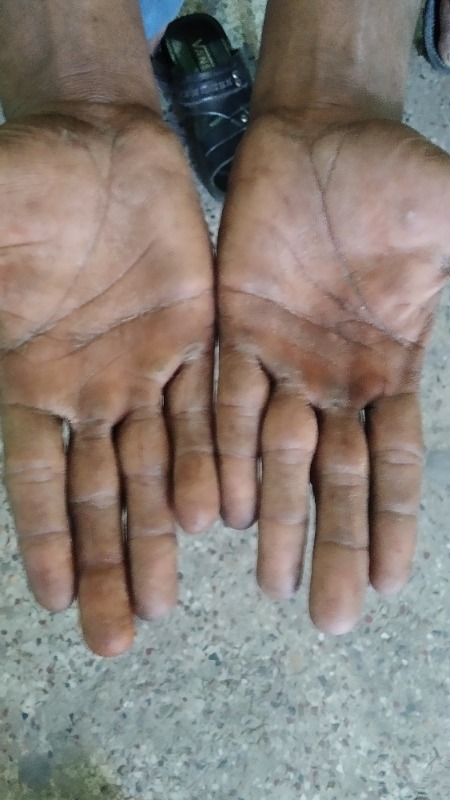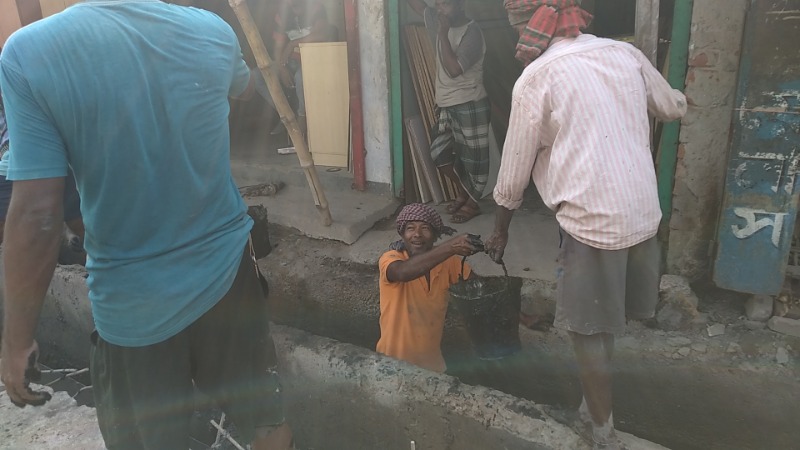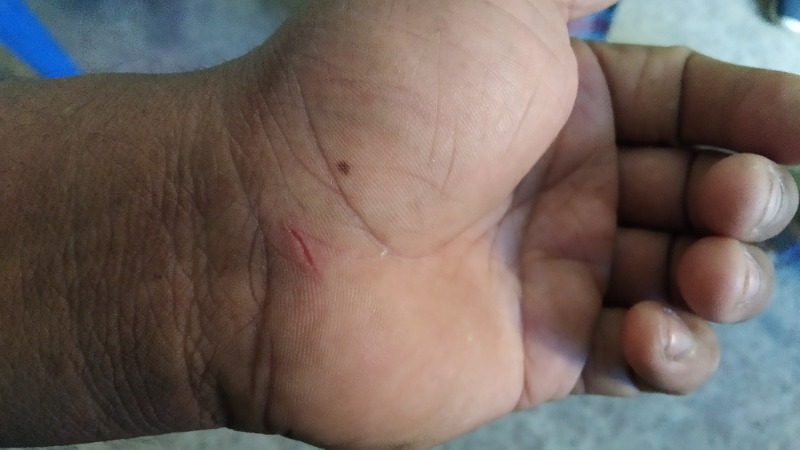- Forum
- categories
- Health and hygiene, schools and other non-household settings
- Health issues and connections with sanitation
- Global guidelines on sanitation and health (WHO, 19 Nov - 18 Dec 2018, Thematic Discussion 13)
- Theme 3 - Safe sanitation chain
- Occupational Health and Safety of Sanitation Workers in Bangladesh
Occupational Health and Safety of Sanitation Workers in Bangladesh
3222 views
- shakilWASH
-
 Topic Author
Topic Author- Research Consultant, PEACE (Research & Consultancy) Former Urban Planner (Research Team member), SLE Berlin, Germany Former WASH Technical Focal , Tiller (Spatial Planning Consultancy) Specialist : #Climate Resilient Inclusive Smart City (CRISC) Planning and Development #Citywide Inclusive Sanitation Planning and Development #NBS
Less- Posts: 4
- Likes received: 2
Occupational Health and Safety of Sanitation Workers in Bangladesh
Over 99% of the population in Bangladesh has access to some form of latrine or toilet (WHO, 2019) which essentially
eradicated open defecation. Yet, along with this positive achievement, there are significant challenges to ensure safely managed sanitation services in Bangladesh. As a consequence, this causes widespread hazards to public health both in urban and rural areas. In addition, the lack of institutional implementation of occupational safety and health guidelines (OSH) in sanitation workplace causes continuous violation of human rights of pit-emptiers as well as sanitation workers (Zaqout et al, 2021)since it ignoresoccupational health and safety of the workers along with their dignity as human in society (World Bank, 2019). In local government like municipality and city corporation, informal workers generally conduct the emptying, transport, and disposal steps of the sanitation service chain. This part of the sanitation sector historically dominated by low caste (primarily Dalit, or ‘Untouchable’) Hindus, commonly known as
‘horijon’ or ‘sweepers’ (Repon et al., 2015). By the critical nature, a lack of occupational safety and health (OSH) regulations and poor understanding of the potential health impacts of manual handling of faecal sludge makes pit emptying one of Bangladesh’s most dangerous professions (SNV, 2016). In recent years, there were different death incidents occurred in different districts e.g. six people died during containment emptying in different districts (i.e. Dhaka, Tangail, Kushtia) in 2021; six people died at a time in Jaypurhat and two in Faridpur district while cleaning a septic tank in 2019; three cleaners died at Tangi in Dhakain 2018 (Patwaryet al.,2021). In most of the cases, the inhalation of toxic gases that build up insidesewers and septic tanks is the prevalent cause for the death of most sewer and septic tank cleaners. Besides, exposure to sludge without the shield of protectiveclothing may cause illnesses such as cholera, typhoid and diarrhea as well as respiratory and skin infections (SNV, 2016). Moreover,they hardly have insurance coverage or access to health services which increases their risk in many folds. However, despite occupational safety and health (OSH) being a keyindicator in the maintenance of labor standards and the Bangladesh Labor Act 2006, the health and safety of workers involved in FSM remains broadly ignored and water and sanitation campaigns have failed to sufficiently address OSH for workers in the Sanitation Service Chain from a right perspective (Repon et al., 2015).In 2016, the FSM Network in Bangladesh hosted an FSM Convention in Dhaka and dedicated to promoting better working conditions for pit-emptiers. 100 emptiers from across Bangladesh shared their experiences, including the challenges of their profession and their vision for improvements (WSUP, 2016). The participants were from large businesses and small-scale. The convention mentioned the pit-emptiers’ challenges in line with the ILO criteria for decent work: dignity, equality, fair income and safe working conditions. Since then, more advocacy work was done independently by the participating organizations. For instance, the NGO SNV Bangladesh published a report titled City Cleaners: Stories of Those Left Behind (Karim, 2017) and produced an Occupational Health and Safety (OSH) manual for pit-emptiers (Repon et al., 2015). Along with the OSH manual, other efforts to promote the health, safety and dignity of sanitation workers have been recognized in the first global report on sanitation workers (World Bank, 2019). Different studies assessed the job sustainability of the sanitation workers (Zaqout et al., 2020), and knowledge, practices and concerns of sanitation and waste workers in the COVID-19 pandemic (WaterAid, 2020),yet, there is no specific and comparative study on OSH of sanitation workers in detail in city corporations like Rajshahi and Rangpur in Northern Bangladesh. Although, there are some relevant researches on the FSM framework, treatment plant function, and efficiency; and safe emptying of containments in the Khulna Division (e.g KCC,Kushtia, Jhinaidah, and Faridpur Paurashava), yet, there is a gap in research to evaluate the implementation and practice of Occupational Safety and Health (OSH) guidelines for FSM (2017). There is no specific research conducted which emphasizes the sanitation workers’ health risk, social dignity, socio-economic condition, and working environment in the context of individual cities in Bangladesh. The proposed research will be able to make an inventory and cover the above research gap. It will also be a comparative inventory on occupational safety measures, health risk issues, social acceptance, and socio-economic status of sanitation workers (i.e., both formal and informal) among the cities. This study will contribute new research approaches and outcomes to improve working condition on pro-poor sanitation workers communities who are engaged in sanitation service chain. Finally, it will introduce realistic solutions of observed problems and challenges to implement the institutional framework of sanitation workers by following OSH guidelines.
eradicated open defecation. Yet, along with this positive achievement, there are significant challenges to ensure safely managed sanitation services in Bangladesh. As a consequence, this causes widespread hazards to public health both in urban and rural areas. In addition, the lack of institutional implementation of occupational safety and health guidelines (OSH) in sanitation workplace causes continuous violation of human rights of pit-emptiers as well as sanitation workers (Zaqout et al, 2021)since it ignoresoccupational health and safety of the workers along with their dignity as human in society (World Bank, 2019). In local government like municipality and city corporation, informal workers generally conduct the emptying, transport, and disposal steps of the sanitation service chain. This part of the sanitation sector historically dominated by low caste (primarily Dalit, or ‘Untouchable’) Hindus, commonly known as
‘horijon’ or ‘sweepers’ (Repon et al., 2015). By the critical nature, a lack of occupational safety and health (OSH) regulations and poor understanding of the potential health impacts of manual handling of faecal sludge makes pit emptying one of Bangladesh’s most dangerous professions (SNV, 2016). In recent years, there were different death incidents occurred in different districts e.g. six people died during containment emptying in different districts (i.e. Dhaka, Tangail, Kushtia) in 2021; six people died at a time in Jaypurhat and two in Faridpur district while cleaning a septic tank in 2019; three cleaners died at Tangi in Dhakain 2018 (Patwaryet al.,2021). In most of the cases, the inhalation of toxic gases that build up insidesewers and septic tanks is the prevalent cause for the death of most sewer and septic tank cleaners. Besides, exposure to sludge without the shield of protectiveclothing may cause illnesses such as cholera, typhoid and diarrhea as well as respiratory and skin infections (SNV, 2016). Moreover,they hardly have insurance coverage or access to health services which increases their risk in many folds. However, despite occupational safety and health (OSH) being a keyindicator in the maintenance of labor standards and the Bangladesh Labor Act 2006, the health and safety of workers involved in FSM remains broadly ignored and water and sanitation campaigns have failed to sufficiently address OSH for workers in the Sanitation Service Chain from a right perspective (Repon et al., 2015).In 2016, the FSM Network in Bangladesh hosted an FSM Convention in Dhaka and dedicated to promoting better working conditions for pit-emptiers. 100 emptiers from across Bangladesh shared their experiences, including the challenges of their profession and their vision for improvements (WSUP, 2016). The participants were from large businesses and small-scale. The convention mentioned the pit-emptiers’ challenges in line with the ILO criteria for decent work: dignity, equality, fair income and safe working conditions. Since then, more advocacy work was done independently by the participating organizations. For instance, the NGO SNV Bangladesh published a report titled City Cleaners: Stories of Those Left Behind (Karim, 2017) and produced an Occupational Health and Safety (OSH) manual for pit-emptiers (Repon et al., 2015). Along with the OSH manual, other efforts to promote the health, safety and dignity of sanitation workers have been recognized in the first global report on sanitation workers (World Bank, 2019). Different studies assessed the job sustainability of the sanitation workers (Zaqout et al., 2020), and knowledge, practices and concerns of sanitation and waste workers in the COVID-19 pandemic (WaterAid, 2020),yet, there is no specific and comparative study on OSH of sanitation workers in detail in city corporations like Rajshahi and Rangpur in Northern Bangladesh. Although, there are some relevant researches on the FSM framework, treatment plant function, and efficiency; and safe emptying of containments in the Khulna Division (e.g KCC,Kushtia, Jhinaidah, and Faridpur Paurashava), yet, there is a gap in research to evaluate the implementation and practice of Occupational Safety and Health (OSH) guidelines for FSM (2017). There is no specific research conducted which emphasizes the sanitation workers’ health risk, social dignity, socio-economic condition, and working environment in the context of individual cities in Bangladesh. The proposed research will be able to make an inventory and cover the above research gap. It will also be a comparative inventory on occupational safety measures, health risk issues, social acceptance, and socio-economic status of sanitation workers (i.e., both formal and informal) among the cities. This study will contribute new research approaches and outcomes to improve working condition on pro-poor sanitation workers communities who are engaged in sanitation service chain. Finally, it will introduce realistic solutions of observed problems and challenges to implement the institutional framework of sanitation workers by following OSH guidelines.
Best regards
Woakimul Islam Shakil
Research Consultant,
PEACE (Research & Consultancy)
Former Urban Planner (Research Team member),
SLE Berlin, Germany
Former WASH Technical Focal , Tiller (Spatial Planning Consultancy)
Specialist :
#Climate Resilient Inclusive Smart City (CRISC) Planning and Development
#Citywide Inclusive Sanitation Planning and Development
#Circular Economy Model
#Nature-Based Solution
Email: This email address is being protected from spambots. You need JavaScript enabled to view it.
This email address is being protected from spambots. You need JavaScript enabled to view it.
Cell: +8801744976369
Woakimul Islam Shakil
Research Consultant,
PEACE (Research & Consultancy)
Former Urban Planner (Research Team member),
SLE Berlin, Germany
Former WASH Technical Focal , Tiller (Spatial Planning Consultancy)
Specialist :
#Climate Resilient Inclusive Smart City (CRISC) Planning and Development
#Citywide Inclusive Sanitation Planning and Development
#Circular Economy Model
#Nature-Based Solution
Email: This email address is being protected from spambots. You need JavaScript enabled to view it.
This email address is being protected from spambots. You need JavaScript enabled to view it.
Cell: +8801744976369
Attachments:
-
 IMG_202303...5103.jpg
(Filesize: 93KB)
IMG_202303...5103.jpg
(Filesize: 93KB)
-
 IMG_202303...4317.jpg
(Filesize: 80KB)
IMG_202303...4317.jpg
(Filesize: 80KB)
-
 IMG_202303...4806.jpg
(Filesize: 74KB)
IMG_202303...4806.jpg
(Filesize: 74KB)
Please Log in to join the conversation.
You need to login to reply
Share this thread:
- Forum
- categories
- Health and hygiene, schools and other non-household settings
- Health issues and connections with sanitation
- Global guidelines on sanitation and health (WHO, 19 Nov - 18 Dec 2018, Thematic Discussion 13)
- Theme 3 - Safe sanitation chain
- Occupational Health and Safety of Sanitation Workers in Bangladesh
Recently active users. Who else has been active?
Time to create page: 0.134 seconds







